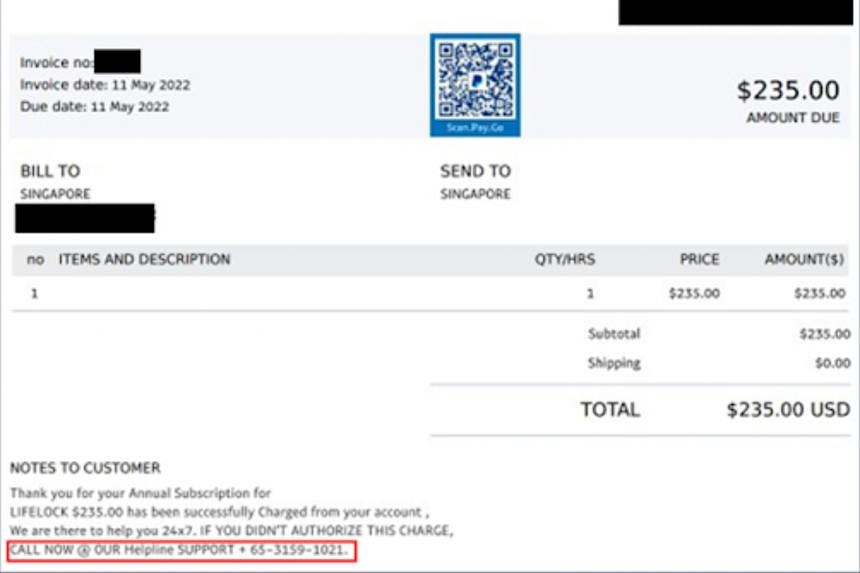SINGAPORE - A new kind of tech support scam has emerged, involving the impersonation of fintech company PayPal, said the police on Wednesday (May 18).
Since January, at least four victims have fallen prey to the scam, with one victim losing about $33,000.
In this variant, victims receive e-mails containing PayPal invoices which list details of unauthorised transactions for goods or services from third-party vendors.
In the e-mail, a fake helpline is provided, which victims believe they can call to dispute the transaction and request for a refund.
Upon calling the number, victims are transferred to a scammer impersonating an agent from the third-party vendor, who would claim to be able to help them.
The scammer will then instruct the victims to download a software on their computer to facilitate the cancellation of the transaction.
Said the police: "Victims would not realise that the software would enable the scammers to remotely control the victims' computers."
Once the software is installed, scammers ask victims to log into their online bank accounts.
After the victims log into their bank accounts, scammers can take over their computers and transfer funds out of victims' bank accounts without their consent.

In April, the police said that at least 154 victims lost $7.1 million to tech support scams since January this year.
Other methods used in tech support scams involve scammers claiming to be employees of Internet service providers and offering to fix Wi-Fi network issues in order to gain access to victims' bank accounts remotely.
The police said: "If any member of the public believes they have fallen prey to the scam, they should immediately turn off their computer to halt further activities.
"Do not panic and do not follow instructions to install applications, type commands into your computer or log into your online banking accounts."
Those who are unsure whether the invoice they receive from "PayPal" is real, can forward the e-mail to phishing@paypal.com, said the police.
The police added that the fintech company is taking action against those who create fraudulent invoices and that customers will not be charged for any item they did not buy.
Members of the public can also lodge a police report and inform the bank to stop further unauthorised access to their bank accounts.


